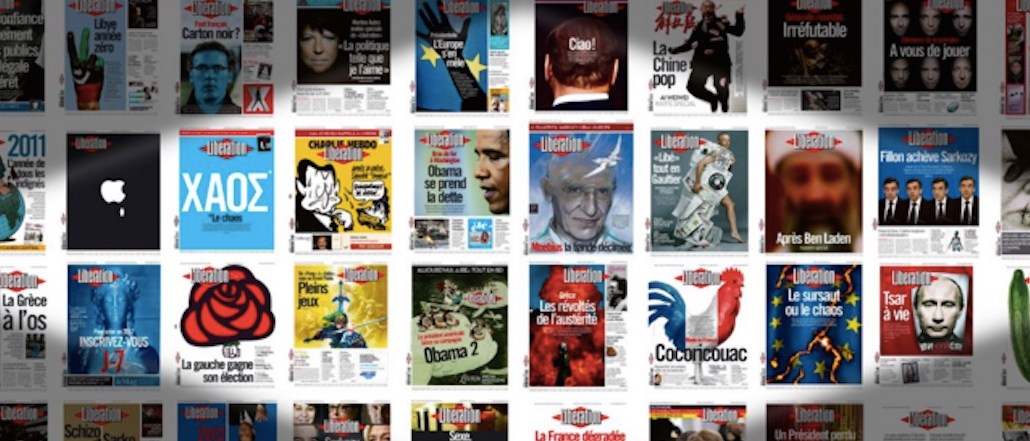Secure your place at the Digiday Publishing Summit in Vail, March 23-25
For France’s Libération, Facebook Instant Articles drives a 30 percent increase in time spent

As an experiment, French daily newspaper publisher Libération has spent the last two months publishing each of its 150 daily articles to Facebook Instant Articles. It turns out, people like reading articles there.
While Instant Articles promises faster page loading times, it also hands over more monetization and distribution control to the platform, meaning plenty of publishers are testing as they go.
“We chose to publish everything so we could compare our average metrics to what was going on before,” Libération’s head of digital, Xavier Grangier, told Digiday, “otherwise it’s very hard to measure the impact because every story and subject matter is different.”
ComScore ranks Libération as the seventh largest French publisher in comScore’s news category, and has 2.3 million Internet users in France in February, but it only tracks desktop users. The publisher’s own Google Analytics find that 50 percent of its users now come from mobile, and 16 percent of this number reach Libération through Facebook. SimilarWeb, again only tracks desktop visits, finds that in the past year Facebook referrals to Libération have increased by 3 percent.
From analysing the metrics from over 7,000 articles that have been posted on Instant Articles since January, it found positive results across time spent, engagement and revenue per article.
According to Facebook’s analytics, the time spent on articles has increased 33 percent to 4 minutes 40 seconds. Grangier ventures this could be because readers prefer the format of Instant Articles, or because pages load faster so they stick around for longer.
The most successful article recently, as Facebook Insights only goes back for a week, was this piece on protests at a meeting about a proposed shelter for the homeless, which performed slightly lower than average of 2 minutes and 24 seconds time spent.

Libération has seen the number of Facebook fans to its page increase by 10 percent, to just over 550,000. The publisher, the third biggest in France, held back from posting to Facebook during the past four years because it didn’t feel its political subject matter was well-suited to the social network. By comparison Le Monde has close to 3 million fans to its Facebook page.
Libération, which has a hybrid model, gets half of its revenue from ads and half from subscriptions, which cost €15 ($16.82) per month for digital only, €25 ($28.03) for print and digital. The other key metric it is measuring is average revenue per article, compared to its mobile Web page (as Instant Articles is only on mobile). Grangier said it is currently making the same amount of revenue on Instant Articles, even though its mobile Web pages have multiple sources of revenue, like promoted links served by companies like Outbrain. Facebook Audience Network is selling the ads, which occur every 350 words or so and have a CPM of $1.80. But ad rates won’t stay this high forever, so it will keep monitoring and adjusting the number it posts on Instant Articles accordingly.
Other publishers, like daily tabloid La Parisien, was an Instant Articles beta partners too, but Libération was the only one to publish everything on the platform. Grangier points out that analytics firms like comScore and the French equivalent Media Metrie, don’t count Instant Article readers. “I think some people were a bit afraid of losing the audience,” he said.
Image: Libération via Facebook.
More in Media

The case for and against publisher content marketplaces
The debate isn’t whether publishers want marketplaces. It’s whether the economics support them.

Urban Outfitters shifts its influencer strategy from reach to participation
Me@UO is Urban Outfitters’ new creator program leverage micro-creators with smaller, engaged communities that are passionate about the brand.

Media Briefing: Without transparency, publishers can’t tell if Google’s Preferred Sources feature benefits them
Six months in, Google’s Preferred Sources promises loyalty-driven visibility, but leaves publishers guessing at the traffic impact.





